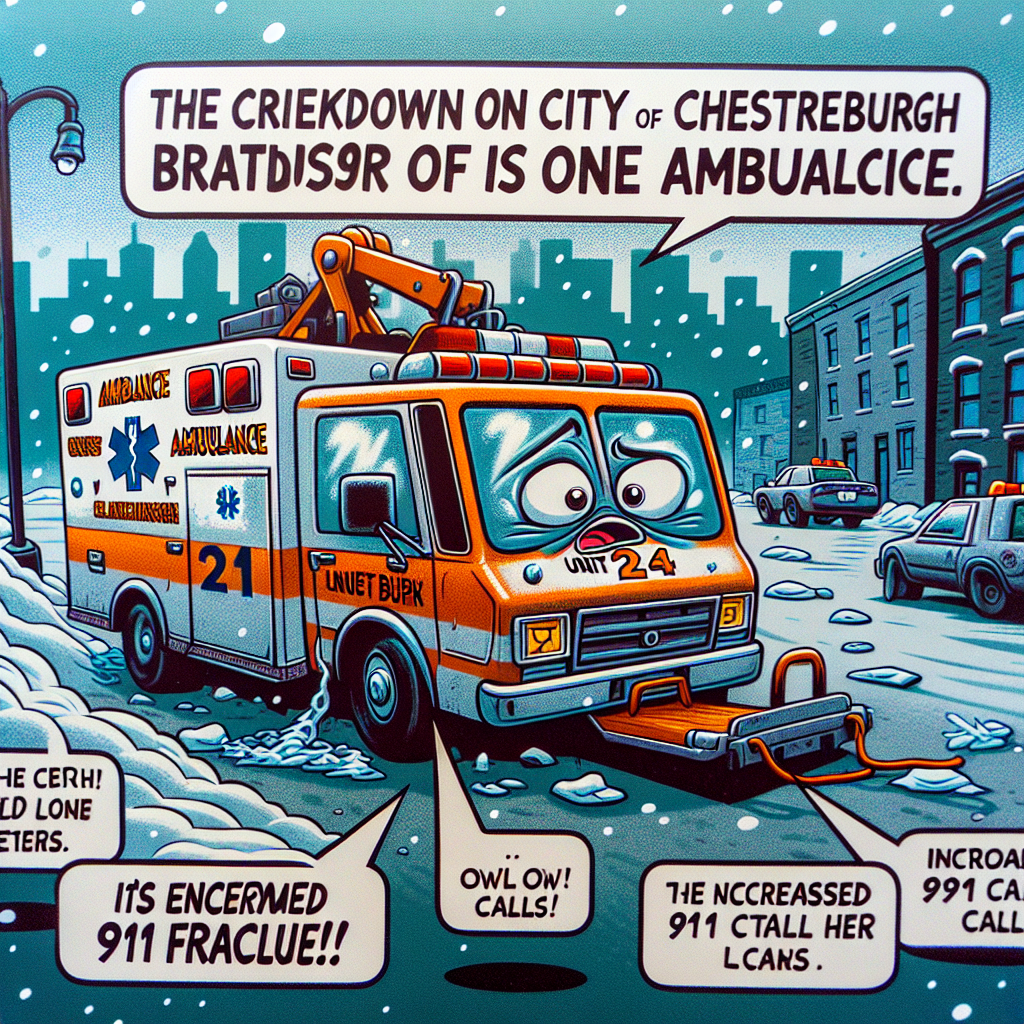Chesterburgh’s Sole Ambulance Breakdown Exposes Critical Gaps in Emergency Response and Funding

Chesterburgh’s lone ambulance was out of service for a total of 23 hours between March 12 and March 14, according to records obtained from the Chesterburgh Emergency Medical Services (EMS) department. The breakdown, caused by engine failure, occurred during an unseasonably cold stretch and coincided with an increase in 911 calls citywide.
The ambulance in question, unit 24, stopped running at approximately 4:17 p.m. on March 12. Attempts to repair the vehicle on site failed, and the unit was towed to Chesterburgh’s municipal garage, where it remained grounded until 3:12 p.m. on March 13. A temporary replacement was not dispatched during that time, according to EMS logs and statements from dispatcher Carl Hernandez, who has worked the Chesterburgh 911 center for 11 years.
“We were down one ambulance,” Hernandez said in an interview conducted March 18. “We had to stretch resources and rely on mutual aid agreements with neighboring towns. That’s always our fallback, but every minute counts when someone’s calling 911.”
Dispatch records show a 16 percent increase in call volume during those 23 hours relative to the same period one week earlier. Of particular concern were 11 calls classified as high-priority cardiac or respiratory emergencies. Response times for these calls averaged 18 minutes, compared to the city’s stated goal of 8 minutes.
The increased response time did not go unnoticed by residents. On March 13, at precisely 8:42 p.m., Chesterburgh resident and retired firefighter Millie Grant called 911 for her neighbor, who was experiencing severe chest pain. The call was recorded and reviewed by The Chesterburgh Ledger. It took 21 minutes for EMS to arrive and transport the patient to Chesterburgh General Hospital.
“I understand things break down; nobody can plan for mechanical failure,” Ms. Grant said on March 16. “But the fact that it took that long is alarming, especially when health emergencies don’t wait.”
Chesterburgh EMS Director, Thomas Blake, confirmed the timeline of events in a phone interview dated March 17 but declined to answer detailed questions regarding contingency plans or whether additional units might be procured in the near future.
“Unit 24’s failure was unfortunate. We’re working with the maintenance team to prevent future incidents. Our protocols were followed, and mutual aid was activated promptly,” Blake stated. “We are committed to serving our community efficiently.”
However, internal documents leaked anonymously to The Chesterburgh Ledger suggest that unit 24 was overdue for a full engine inspection by six months at the time of its failure. Maintenance logs show that the last engine check was completed on September 7, 2023, despite protocol mandating inspections every six months.
These same documents indicate the department’s budget for vehicle maintenance was cut by 12 percent in the previous fiscal year as part of city-wide austerity measures. The reduction coincided with broader cuts in emergency services funding, including staffing levels and equipment upgrades.
City Manager Linda Travers responded to inquiries on March 19, stating that “budget constraints are a reality for Chesterburgh and many small cities. We prioritize critical services and work diligently to balance fiscal responsibility with public safety."
She added that city council is currently reviewing proposals to allocate emergency funding for EMS, specifically targeting new vehicles and enhanced maintenance schedules. No timeline has been announced for a final decision.
Analysts who reviewed response data from the period note that Chesterburgh’s reliance on a single
